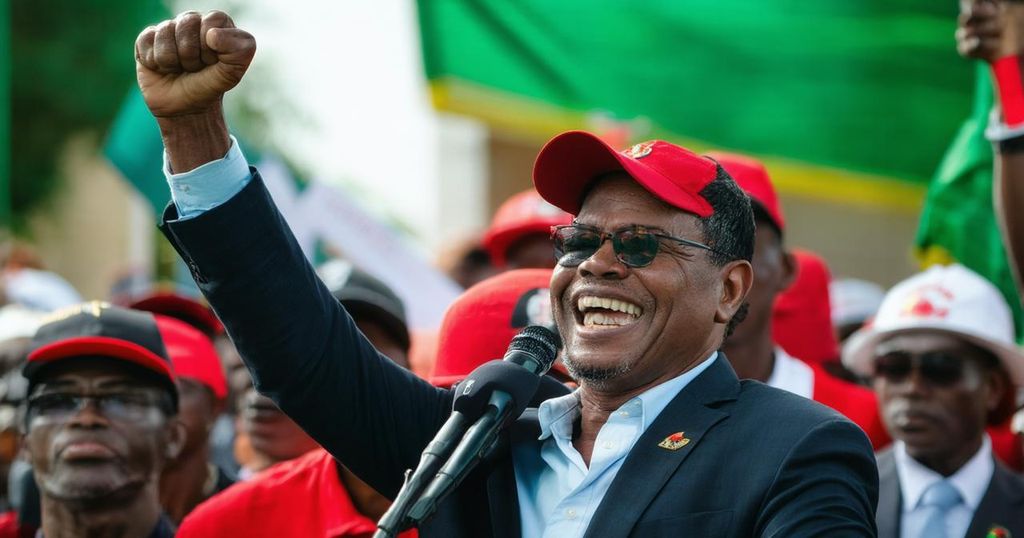Mozambique’s ruling Frelimo party has won the presidential election, with newcomer Daniel Chapo securing 71% of the votes amidst serious allegations of rigging and violence. The main opposition candidate, Venancio Mondlane, contests the results and has called for protests following the murder of key party members. The elections have faced scrutiny from international observers citing irregularities.
Mozambique’s ruling party, Frelimo, has successfully retained power following the recent national elections, as announced by the election commission. Daniel Chapo, an unfamiliar face on the political scene, has emerged victorious with 71% of the vote, succeeding Filipe Nyusi, who has completed two terms in office. At the age of 47, Mr. Chapo makes history as the first president of Mozambique born after the country gained independence in 1975. His nearest competitor, Venancio Mondlane, garnered only 20% of the votes. However, the electoral process has been marred by significant allegations of rigging and violence, notably the killing of opposition supporters, which have incited widespread protests. In a move criticized by many, Zimbabwean President Mnangagwa congratulated Mr. Chapo on his “resounding victory” even before the official results were disclosed. The atmosphere in Mozambique’s capital, Maputo, remains tense, with reports of deserted streets and shuttered businesses. Mr. Mondlane has called for a national strike on Thursday in response to the alleged electoral improprieties. He further indicated that these protests would serve to honor his lawyer and a party official who were fatally shot last week in what he labels politically motivated assassinations. Despite preliminary results favoring Mr. Chapo, Mr. Mondlane maintains that he was the true winner of the elections. On Monday, he organized protests nationwide, which law enforcement attempted to disperse with live ammunition and tear gas. The European Union’s election observers have also criticized the electoral process, noting that there may have been fabrications in the election results, citing “irregularities during counting and unjustified alteration of election results.”
The recent elections in Mozambique mark a significant moment in the nation’s political landscape, as Frelimo, the long-dominant party since independence, continues to face scrutiny and allegations related to election integrity. Despite the apparent victory of Daniel Chapo, apprehensions among the populace regarding the legitimacy of the electoral process are palpable, fueled by incidents of violence and the suppression of dissent. Frelimo’s extended rule and the historical context of its governance set the stage for potential unrest, as opposition groups mobilize to challenge perceived injustices. This election continues a series of contentious political events in Mozambique, highlighting the delicate balance of power and the public’s quest for transparency and fairness in the electoral process.
In conclusion, the recent election results in Mozambique have reaffirmed the hold of the Frelimo party over the country, with Daniel Chapo set to take office amidst serious allegations of electoral malpractice. The political climate is marked by unrest, as opposition figures contest the legitimacy of the results, leading to protests and calls for national strikes. The response from the international community, particularly EU observers, underscores the serious concerns regarding the electoral integrity, raising questions about the future of democratic processes in Mozambique.
Original Source: www.bbc.com






